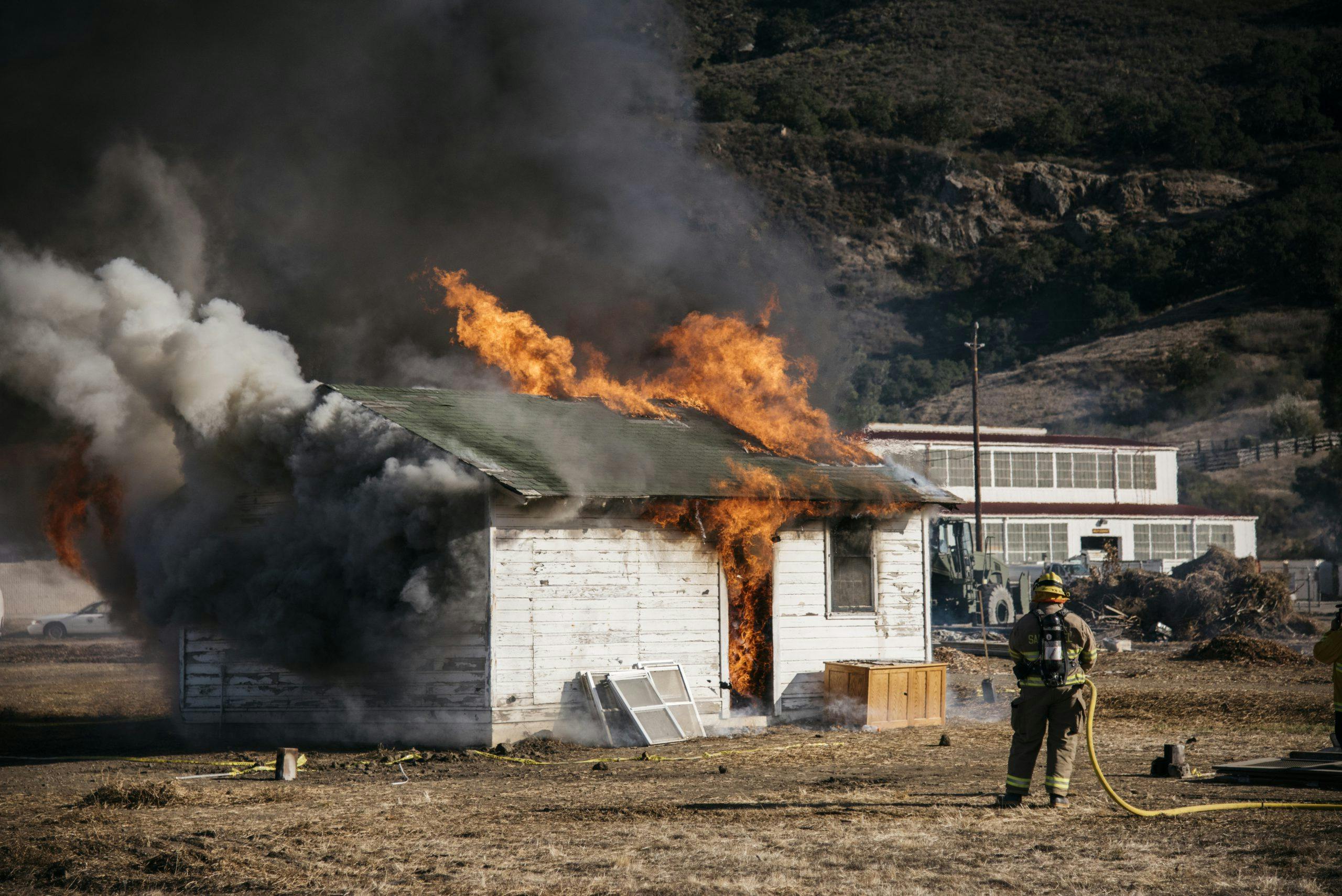
MEET OUR TEAM
Get to know the passionate individuals behind the WUI FIRE Institute. Our team is made up of experts in their fields who are dedicated to advancing our mission and making a difference in the world.
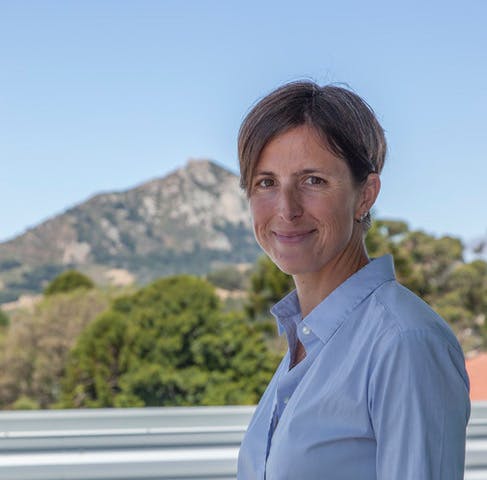
Adrienne Greve
City and Regional Planning Department
Adrienne I. Greve is a Professor in the City and Regional Planning Department at California Polytechnic State University, San Luis Obispo, where she has been a member of the faculty since 2006. She holds a Ph.D. from the Interdisciplinary PhD Program in Urban Design and Planning, Urban Ecology Program, at the University of Washington, Seattle, an M.S. in Bioresource Engineering, Environmental Engineering Option, from Colorado State University, Fort Collins, and a B.S. in Biological and Agricultural Engineering from Cornell University, Ithaca. Her academic and professional experience includes working as a Surface-Water Hydrologist with the U.S. Geological Survey in Denver, CO, and as Science, Technology, & Watersheds Staff with the Science, Sustainability, and Watershed Group at Seattle Public Utilities, Seattle, WA. Additionally, she has served as a Visiting Professor at the Research Center for Disaster Reduction Systems, Disaster Prevention Research Institute, Kyoto University, Uji, Kyoto, Japan. Dr. Greve's research interests are focused on climate adaptation planning and policy, disaster risk reduction, and climate-smart investment planning. She has contributed to several publications on these topics, including the California Adaptation Planning Guide, Climate Action Planning: A Guide to Creating Low-Carbon, Resilient Communities, and Local Climate Action Planning. In addition to her research, Dr. Greve is involved in several capacity-building initiatives, including serving as Co-Principal Investigator for Capacity Building Activities for Five Indian Cities to Develop Climate-Smart Investment Plans for the United Nations International Development Organization.
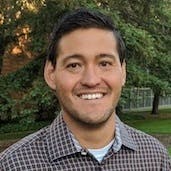
Andrew Fricker
Social Sciences Department
Andrew Fricker is an Assistant Professor of Geography in the Social Sciences Department at California Polytechnic State University, San Luis Obispo. He holds a Ph.D. in Geography from the University of California, Los Angeles, an M.A. in Geography from the same institution, and a B.S. in Physical Geography from the University of California, Santa Barbara. He also has two postdoctoral fellowships in Botany and Plant Sciences from the University of California, Riverside, and Geographical Sciences and Urban Planning from Arizona State University. Dr. Fricker's research interests lie in the application of remote sensing techniques to study ecosystems, with a focus on forest ecology, urban ecology, and natural disasters. He has authored several refereed publications in various journals, including Ecological Applications, Remote Sensing, and Forest Ecology and Management. His work has been recognized with several awards, including a NASA-Jet Propulsion Laboratory Research Support Agreement, the CSU Coast Rapid Response Funding Program, and a California Urban Forest Inventory Phase 2 grant.
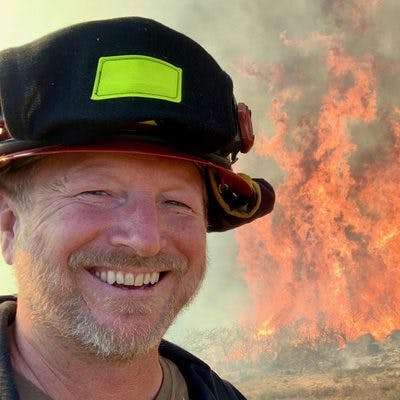
Christopher Dicus
Natural Resources Management and Environmental Sciences Department
Christopher Dicus is an accomplished Professor of Wildland Fire & Fuels Management at California Polytechnic State University, San Luis Obispo. He holds a PhD in Silviculture from Louisiana State University, Baton Rouge, LA, an MS in Fire Ecology from Utah State University, Logan, UT, and a BS in Forestry/Wildlife from Louisiana Tech University, Ruston, LA. With over 20 years of experience in the field, he has become a leading expert in Wildland-Urban Interface, fuel treatment impacts on fire behavior and ecosystem services, and Fire Ecology. He has also led several high-impact projects, including "The California Fire Science Consortium – The Wildland Urban Interface," which was awarded $474,120 by the Joint Fire Sciences Program. He also led "Efficacy of Wildland-Urban Interface Mitigation Strategies in Advancing Community Disaster Resilience" and "Quantification of Greenhouse Gas Emissions Benefits Associated with CAL FIRE California Climate Investments, Fire Prevention Grant Program Projects." In terms of leadership, he has presented numerous keynote speeches at international conferences and served as an expert panelist in virtual webinars. He has also written several publications, technical reports, and scientific articles, including "Fire Spread and structural loss during the 2016 Fort McMurray Wildfire" and "How fuel treatment types, locations, and amounts impact landscape-scale fire behavior and carbon dynamics in the Klamath Mountains."
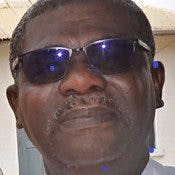
Cornelius Nuworsoo
City and Regional Planning Department
Cornelius Nuworsoo is a Professor of Transportation Planning at California Polytechnic State University in San Luis Obispo. He holds a Ph.D. in Transportation Engineering and a Master of City Planning, both from the University of California, Berkeley, as well as a Master of Science in Transportation Studies from Morgan State University in Baltimore and a Bachelor of Science in Infrastructure Planning from the University of Science and Technology in Ghana. Dr. Nuworsoo's core areas of expertise include evacuation modeling, emergency preparedness planning, and community plan development. He has extensive experience in fine-tuning emergency evacuation plans and developing community outreach programs. Dr. Nuworsoo has been involved in several transportation-specific research projects, covering a variety of topics. These projects have been sponsored by multiple Transportation Research Centers, with a total of $500,000 in awards received between 2008 and 2014. Additionally, he has been instrumental in the development of community plans and Environmental Impact Reports (EIRs) for multiple communities across California, with a total of $800,000 in awards between 2005 and 2021. His research and planning activities have focused on emergency preparedness planning, evacuation modeling, and fine-tuning emergency evacuation plans. His work has resulted in the development of new tools and models for assessing access in single-access subdivisions in the Wildland-Urban Interface, as well as the preliminary evaluation of Cambria's Emergency Response Plan. In addition to his extensive experience in transportation planning, Dr. Nuworsoo has published technical reports and presented his work at numerous symposia. His selected publications include "Preliminary Evaluation of Cambria’s Emergency Response Plan" and "A Tool to Assess Access at Single-Access Subdivisions in the Wildland-Urban Interface." His work has made significant contributions to the field of transportation planning, particularly in the area of emergency preparedness and evacuation modeling.
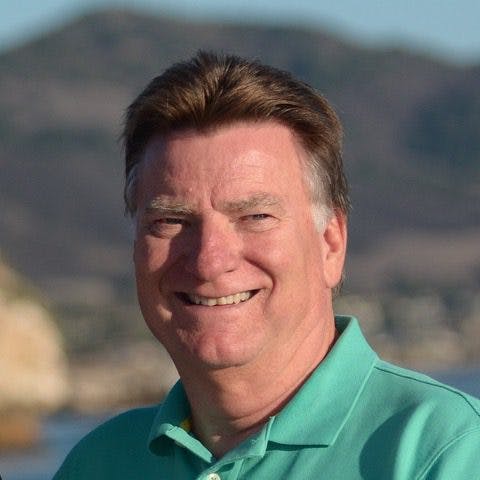
Dan Turner
CAL FIRE-San Luis Obispo Fire Chief (Retired)
Dan Turner is a retired Fire Chief with an extensive career of 37 years with CAL FIRE-San Luis Obispo, Santa Cruz, and Tulare counties. Throughout his career, Chief Turner served as a Type 1 Incident Commander on numerous major emergencies, including the Oakland Hills (Tunnel) fire, Loma Prieta Earthquake, and 9 other federally declared disasters. Since the 1991 Tunnel fire, Chief Turner has focused on making a significant impact on education and preparedness in reducing consequences of WUI fires. As a graduate of Cal Poly, San Luis Obispo, Chief Turner served as the Interim Director of Cal Poly’s Wildland Urban Interface FIRE Institute. He coordinated the Wildland Urban Interface Fire Colloquium in California and Australia on behalf of the US Dept of Homeland Security Science and Technology Directorate and prepared a detailed study of Homeland Security and Emergency Management professionals and higher education programs throughout California for the CA Office of Emergency Services. Chief Turner also served on the Board of Directors of the CA Fire Chief’s Association, representing SLO, Santa Barbara, and Ventura counties and was Chair of CAL FIRE’s Cooperative Fire Protection Committee. Since his retirement, Chief Turner has served as the Executive Director of the SLO County Fire Safe Council, a 501.c.3 non-profit organization that conducts education, preparedness, outreach, and hazardous fuel reduction programs throughout San Luis Obispo County. With his vast experience, Chief Turner continues to make a difference in educating communities and reducing the risk and consequences of WUI fires.
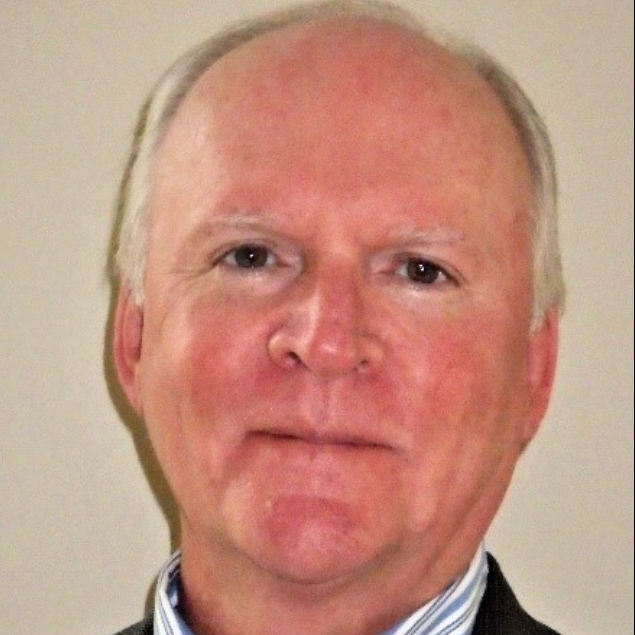
Frederick Mowrer
Director of Fire Protection Engineering Programs
Frederick Mowrer is an accomplished Director of Fire Protection Engineering Programs at Cal Poly, as well as an Adjunct Professor of Mechanical Engineering. He received his Ph.D. in Fire Protection Engineering and Combustion Science from the University of California, Berkeley, and has extensive experience in the field of Fire Protection and Safety Engineering. He also holds a Master's degree in Engineering from the same institution, and a Bachelor's degree in Fire Protection and Safety Engineering from the Illinois Institute of Technology. Dr. Mowrer has held various positions throughout his career, including Assistant/Associate Professor at the University of Maryland from 1987 to 2009 and Fire Safety Consultant at C P Fire, LLC since 1980. He is well-versed in several areas of expertise, including Fire Protection Engineering, Fire Resistance, Fire Risk Assessment, Fire Hazard Analysis, Fire Modeling, and Forensic Fire Analysis. He has published a number of technical reports, symposia, and presentations, including "Overview of Performance-Based Fire Protection Design" in the Fire Protection Handbook, 20th edition, and "Window Breakage Induced by Exterior Fires" in NIST-GCR 98-751. Dr. Mowrer is also committed to education, offering graduate courses in Fire Protection Engineering at Cal Poly, such as FPE 555 - Fire Protection Management in the Wildland Urban Interface. His experience and expertise have made him an authority in the field, and his contributions to fire protection engineering have helped improve the safety and preparedness of communities across the country.
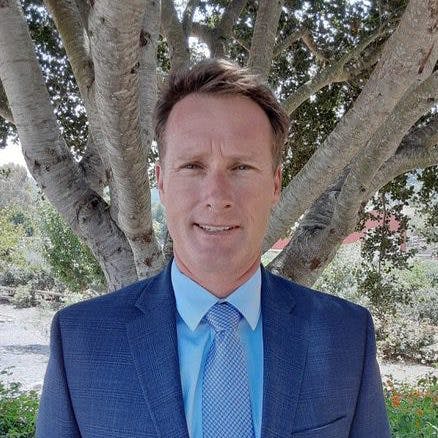
Jeremy James
Natural Resources and Environmental Sciences Department
Jeremy J. James is a renowned plant ecologist and researcher. He is currently serving as a Professor and Department Head at the Department of Natural Resources and Environmental Sciences at California Polytechnic State University, San Luis Obispo. He obtained his Ph.D. in Plant Biology from the University of California, Davis, in 2004 and his B.S. in Ecology and Statistics minor from Cal Poly, San Luis Obispo, in 1998. Jeremy has an illustrious career in research, with 76 peer-reviewed publications to his credit, and has obtained several grants to fund his research. Some of his recent research funding includes a $4.2 million grant from CAL FIRE for workforce educational programs to increase vegetation treatments' pace and scale for forest health and fire hazard reduction in California. Jeremy has served in several academic and professional roles throughout his career. He has held several research scientist positions at the USDA Agricultural Research Service in Burns, OR, from 2005 to 2011. From 2011 to 2012, he served as a Research Scientist at the USDA Agricultural Research Service in Burns, OR, before joining the University of California Division of Agriculture and Natural Resources. He served as an Associate Specialist in Cooperative Extension at the University of California Division of Agriculture and Natural Resources and Director of the Sierra Foothill Research & Extension Center from 2012 to 2018. Jeremy served as a Specialist in Cooperative Extension at the University of California Division of Agriculture and Natural Resources and Director of the Sierra Foothill Research & Extension Center from 2018 to 2020. Throughout his academic and professional career, Jeremy has made substantial contributions to the field of ecology and plant biology. His recent research efforts have focused on improving rangeland soil health and drought resilience, restoring blue oak woodlands, and using diversity and facilitation to enhance establishment and resilience during restoration of invaded rangeland. His research work has been published in several prominent scientific journals, including Nature Ecology & Evolution, Oecologia, and Rangeland Ecology & Management, among others.
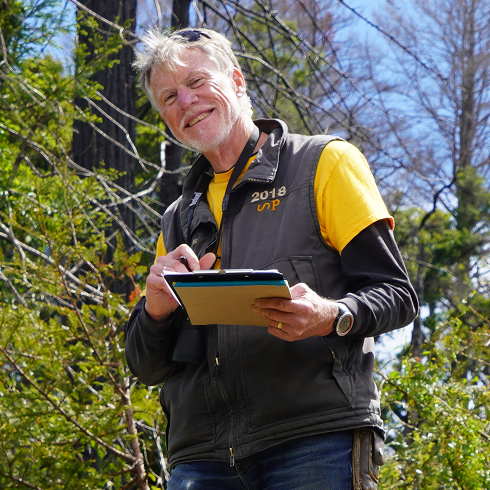
Marc R. Horney
Animal Science Department
Marc R. Horney is Professor of Rangeland Ecology and Management, and Ruminant Nutrition in the Animal Science Department at California Polytechnic State University, San Luis Obispo. He earned a “blended” Ph.D. in ruminant nutrition and rangeland ecology from the University of Nebraska-Lincoln, his Master’s degree in Ruminant Nutrition, with a minor in Rangeland Management at Oregon State University, and his Bachelor’s degree in Animal Science from Cal Poly San Luis Obispo. He is also a state of California Certified Rangeland Manager, license #83, and a member of the state CRM licensing panel. Marc’s professional career began in the Cooperative Extension Service, first with Colorado State University in El Paso County and then for the University of California in Colusa, Glenn, and Tehama counties. From 2005 until 2009 Marc worked as a rangeland management specialist for the California USDA-NRCS, first for the Klamath Basin Watershed Team, and then as Area 1 Range Management Specialist. Marc has been chairing the Range Management Advisory Committee (RMAC) to the California Natural Resources Agency/Board of Forestry since 2011. The RMAC published a white paper presenting the current scientific evidence supporting the use of grazing as a tool for reducing class 1 wildland fuels, which led to its adoption under CalFire’s Vegetation Treatment Program. Marc is a member of the American Society of Animal Science (ASAS), The Society for Range Management (SRM), The Wildlife Society (TWS), and the International Bio-logging Society. He is a long-serving member of the SRM Targeted Grazing Committee, Wildlife Habitat Committee, and former chair and current member of the Geospatial Science and Technology Committee. He is also a member of TWS’ Drone Working Group. Marc’s work brings applied science to improving grassland management on ranch and conservation area scales. All of his work is geospatial in nature, and he has been involved in developing and using remote sensing and mapping (GIS) technologies for improving ecosystem research and management over the last 25+ years.
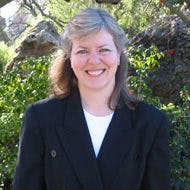
Margot McDonald
Architecture Department
Margot McDonald, AIA, NOMA, NCARB, LEED AP, is a licensed architect and Professor at Cal Poly San Luis Obispo, where she served as the former Architecture Department Head from 2002-03 and 2013-2022. With over 20 years of experience in the field of architecture, she has established herself as an expert in building energy performance, sustainability, and interdisciplinary building design. Her areas of teaching include passive solar heating, passive cooling, daylighting, acoustics, water and waste, resilience, and design for wildfire in the built environment. Margot holds a Master of Architecture degree from the University of Oregon and a BS in Mathematics and BA in French from UC Santa Barbara. She is a licensed architect in the State of Oregon and has been actively involved in numerous national organizations, including the American Institute of Architect’s National Resilience Initiative, where she served as co-lead with Dr. Bill Siembieda in City & Regional Planning at Cal Poly. She also chaired the national U.S. Green Building Council’s Formal Education Committee and served as Chairman of the Board of Directors for the American Solar Energy Society. Throughout her career, she has been committed to advancing sustainable architecture and has worked tirelessly to promote interdisciplinary collaboration between students and faculty in architecture, structural engineering, construction management, and landscape architecture.
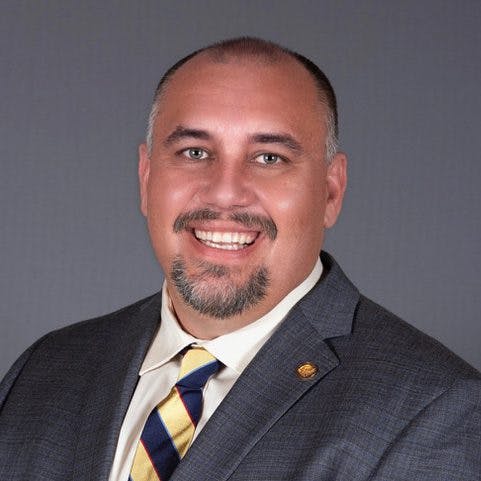
Matt Rahn
Executive Director for the Wildfire Conservancy
Dr. Matt Rahn is currently serving as the Executive Director for the Wildfire Conservancy (a nonprofit research foundation) and as Director for Wildfire Programs at California State University San Marcos. Most recently, he led the creation of a public-health workforce development and training program with Mt. San Jacinto College supporting business and their employees in safe operations and protocols related to COVID-19 guidelines. Prior to this, Dr. Rahn served as the Director for the SDSU Environmental Sciences Program and Field Stations Program, and as adjunct faculty for the Homeland Security Program. Dr. Rahn served as Mayor and City Councilmember for the City of Temecula from 2014-2022. He also served on the Executive Board for the Riverside County Transportation Commission, the regional board for the League of California Cities (and the League’s Public Safety Committee), and on the Board of Directors for the Riverside County Habitat Conservation Authority and the Riverside Conservation Authority. He was also appointed as the first Chair for the State of California Bureau of Cannabis Control Board and continues serving as board member today. Dr. Rahn has over two decades of experience in applied sciences and policy, with an emphasis on environmental science, ecology, statistics, public policy and wildfire science. Having earned both a PhD and JD, Dr. Rahn has focused much of his work on the interface between science and policy, supporting local, state and federal programs in collaboration with lawyers, policymakers and scientists on issues primarily focused on wildfires, land use, public safety, watershed management, endangered species, land use planning and renewable energy. He has designed and implemented many large-scale projects with a strong foundation in policy implications, research design, economic, and statistical analysis. As a researcher and educator, Dr. Rahn has been involved in public safety issues throughout his career. Over nearly two decades, he has been working on issues related to wildfires, with a specific emphasis on economic impacts, improving attack effectiveness, firefighter health and safety, and community resilience. Results of this research have helped establish a benchmark for evaluating economic impacts from large-scale wildfires and understanding the total economic burden. He has also led a staffing study that became the first of its kind to address how firefighter staffing influences initial attack effectiveness and health/safety during a wildfire. He currently serves as the Executive Director for the Wildfire Conservancy, and nonprofit research foundation aimed at advancing the wildfire industry and providing timely research and education advancements in the field. This collaboration is done in partnership with CAL FIRE, CAL FIRE Local 2881, the International Association of Fire Fighters, the National Institute of Standards and Technology, and the US Forest Service. His expertise in fire science, energy, land use, and ecology has established him as an expert in designing and evaluating fire management plans and related fire studies. He is currently leading the development of the West Coast Center of Excellence in Firefighter Mental and Behavioral Health, in collaboration with CAL FIRE L2881 and the International Association of Firefighters.
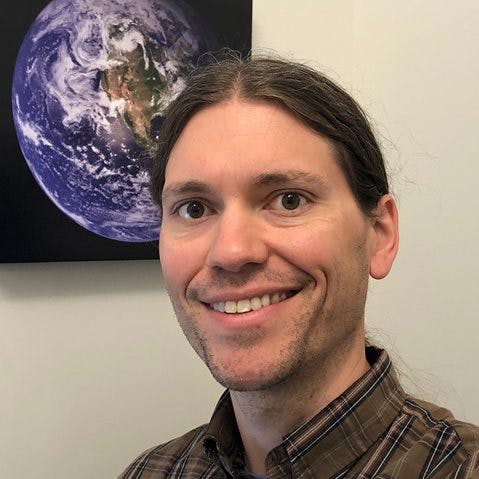
Matthew Zoerb
Chemistry & Biochemistry Department
Matthew Zoerb is an accomplished Associate Professor of Chemistry at California Polytechnic State University. He holds a Ph.D. in Chemistry from the University of California, Berkeley and a B.S. in Chemistry from the University of Tennessee, Chattanooga. Dr. Zoerb has a strong background in atmospheric chemistry, analytical chemistry, smoke composition, and aerosol science. Dr. Zoerb has worked extensively in the field of environmental chemistry, specifically in the area of wildfire smoke and air quality. He has authored several publications on the subject, including "Impacts of 2018 California Wildfires on Organic Aerosol Composition and Air Quality Under Low Smoke Conditions" and "Air-Sea Exchange of Biogenic Volatile Organic Compounds and the Impact on Aerosol Particle Size Distributions." His expertise in this area has led him to be awarded a $70,000 subaward from the US Department of Homeland Security to evaluate and improve personal protective equipment and skin contamination on wildland fires. In addition to his academic pursuits, Dr. Zoerb has worked as a Postdoctoral Scholar at the University of California, San Diego, and as an Assistant Professor at California Polytechnic State University. He has been an Associate Professor at the same institution since 2021, where he continues to inspire and educate the next generation of scientists. Dr. Zoerb's expertise, knowledge, and passion for his field make him a valuable asset to both his students and his colleagues.
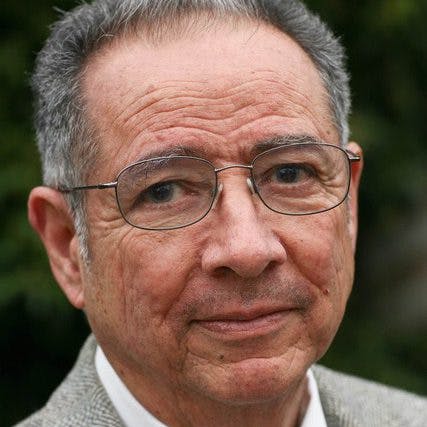
Samuel Vigil
Civil and Environmental Engineering Department
Samuel A. Vigil is a Professor Emeritus of Civil and Environmental Engineering at California Polytechnic State University. Dr. Vigil has a PhD in Environmental Engineering from the University of California, Davis, an MS in Environmental Engineering from Texas A&M, College Station, and a BS in Civil Engineering from the University of California, Berkeley. He is an expert in remote sensing, environmental engineering, solid waste, recycling, energy from waste, and sustainability engineering. Dr. Vigil has worked at California Polytechnic State University since 1982, where he served as a Professor until 2009, and has been a Professor Emeritus since. Prior to joining the university, Dr. Vigil was a Principal Engineer at Brown and Caldwell Consulting Engineers in Walnut Creek, California, from 1980 to 1982. His extensive knowledge and experience in the field have led him to conduct research on a variety of environmental issues, including carbon dioxide and methane emissions, satellite observations for CO2 monitoring, leachate treatment technologies, and solid waste management. Dr. Vigil has authored technical reports, presentations, symposia, and publications on environmental issues. His work on methane emissions from Californian landfills was published in the journal Atmos. Meas. Tech., and he presented his research on the ecology of man-made ecosystems at the Jet Propulsion Laboratory's Carbon Club Meeting. His other work includes presenting a poster on the HUMSAT system, a CubeSat-based constellation for in-situ and inexpensive environmental measurements, at the 2014 Fall Meeting of the American Geophysical Union, and co-authoring a handbook of guidelines for the sustainable technology park. Dr. Vigil's contributions have been recognized by the World Bank and the US Trade and Development Program.
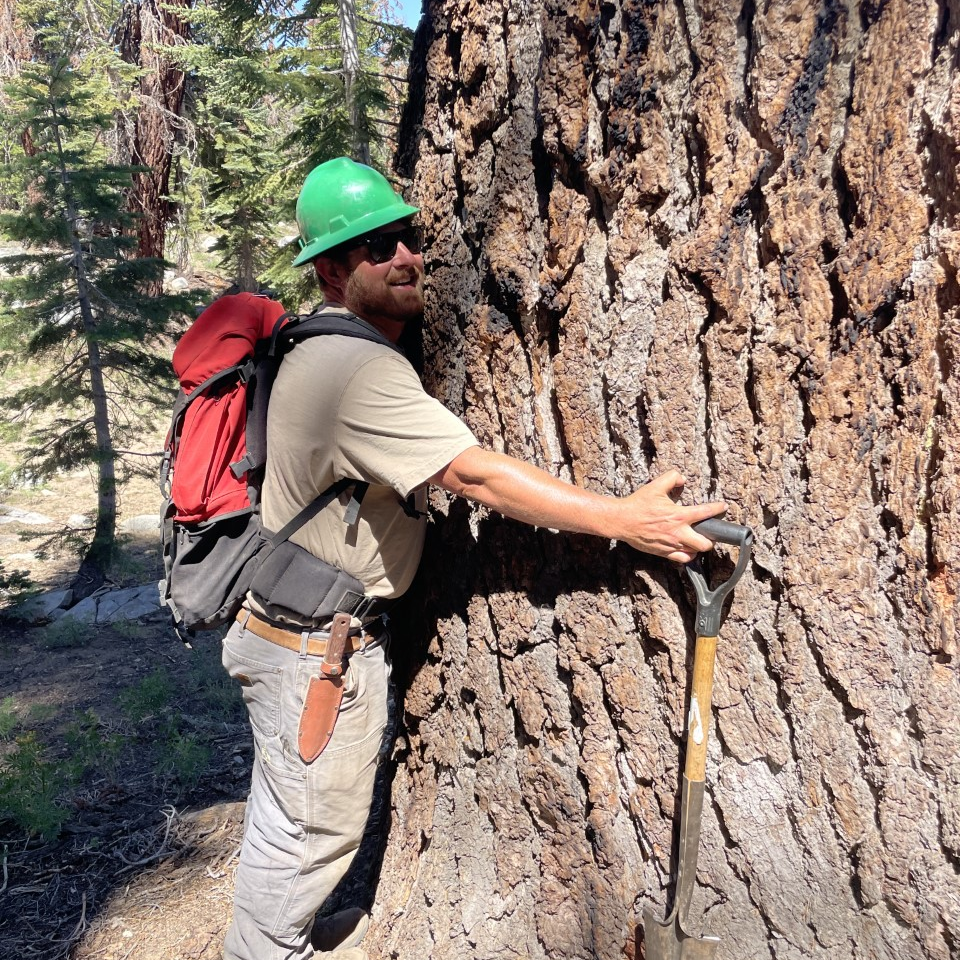
Stewart G. Wilson
Natural Resources and Environmental Sciences Department
Stewart G. Wilson is an Assistant Professor of Soil Resources at California Polytechnic State University. Stewart's journey in the field of soil science began at Humboldt State University, where he earned his Bachelor's degree in Wildland Soils. From there, he went on to obtain a Master of Science in Soils and Biogeochemistry and a Master of Arts in Geography, both with an emphasis on methods, models, and GIS, from UC Davis. Stewart's academic pursuits culminated in a PhD in Soils and Biogeochemistry from UC Davis, which has provided him with a deep understanding of the science of soils. Throughout his academic and professional journey, Stewart has focused his research on a range of topics, including fire-affected soils, postfire mapping, nutrient cycling, soil health, biogeochemistry, vineyard soils, soil genesis and mineralogy, soil data science, and digital soil mapping. His expertise has earned him a vital role within the WUI FIRE Institute, where he serves as an advisor in soil and geospatial science. In this capacity, he provides crucial insights and recommendations to the Institute's team, contributing to its overall mission of promoting fire resilience in the wildland-urban interface. His deep knowledge of soil science, coupled with his experience in geospatial science, makes him a valuable asset to the Institute and an essential figure in the field of wildfire research.
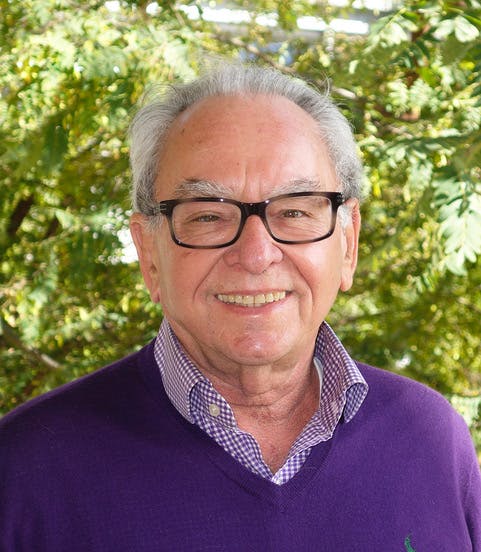
William Siembieda
City and Regional Planning Department
William Siembieda is a distinguished Professor Emeritus of City and Regional Planning at California Polytechnic State University, San Luis Obispo. He has extensive expertise in the study of resiliency, risk reduction, and hazard mitigation, with a focus on policy and informed choices in constructing resilient and reduced-risk communities. Dr. Siembieda's professional practice efforts are transnational and he has been a subject matter expert to the World Bank, the Asian Development Bank, the Chilean National Center for Integrated Natural Hazard Management, and the Japanese International Cooperation Agency. He was also a co-director of the State of California Multi-Hazard Mitigation Plan, which won national acclaim for its early inclusion of climate adaptation. As an expert in state hazard mitigation plan preparation, Dr. Siembieda has contributed to the State of California Adaptation Planning Guide 1.0, which was five years ahead of its time. He currently serves as an advisor to the County of Santa Barbara, CA Core Team for its Climate Changes Vulnerability Assessment and is a Principal Faculty Researcher at Cal Poly, working to establish the Wildland Urban Interface (WUI) Fire Institute. Dr. Siembieda is recognized for his understanding of the dynamics of disaster and recovery systems and has been asked to lead planning and policy groups for various earthquake and geotechnical extreme events in Chile and New Zealand. He has also participated in the Harvard University Kennedy School of Government Center for Crisis Leadership program on major issues in disaster recovery. Dr. Siembieda's decades of research and practice have led to the development of new approaches, such as the asset-access-time model and the ASCI framework, for assessing how to make land use development decisions in high-hazard risk areas. His work has been published in a range of peer-reviewed journals and professional publications. He holds a Ph.D. in Urban Planning from the University of California, Los Angeles, and an Economics B.A. from the University of California, Berkeley. Dr. Siembieda is a member of the American Institute of Certified Planners (AICP) and has received numerous academic honors, including a Fulbright to Mexico, a Japanese Society for the Promotion of Science Fellowship, and the International Society for Integrated Disaster Risk Management (IDRiM) Norio Okada Distinguished Implementation Science Award in 2019.